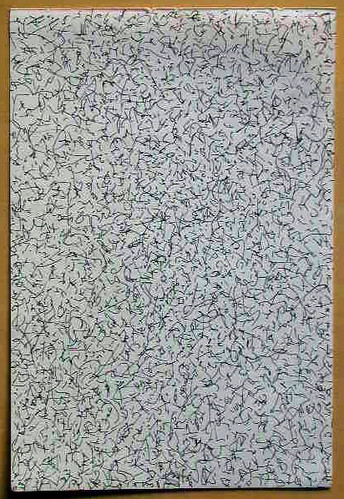Teachers Teaching Teachers #88 - Me and my inquiry in relation to a whole community of learners - 01.23.08
Paul Allison - Wed, 2008-01-30 14:55
 Listen to seven National Writing Project teachers plan a Spring Blogging curriculum together.
Listen to seven National Writing Project teachers plan a Spring Blogging curriculum together.
Find out if seven people can plan a curriculum together over skype. These seven teachers from Writing Projects across the country met and planned a 15-week blogging curriculum that they have started to put together (click read more).
- Bob Levin and Gail Desler (Area 3 Writing Project, Sacramento, CA)
- Woody Woodgate (Alaska Writing Project, Marshall, Alaska)
- Bill O'Neal (Trenton, NJ Writing Project)
- Chris Sloan (Wasatch Range Writing Project, Salt Lake City, Utah)
- Paul Allison and Susan Ettenheim (New York City Writing Project)
by shankargallery
To: Students From: Your teacher RE: Our blogging curriculum Essential Questions * What are you passionate about and how do these interests fit with our big questions? * What voices or sources of information do you think are important to include in your search for answers? * How do you become an effective networker and get people with shared interests to value your voice online? * How can you use our social networks as personal learning sites that lead to social action? Enduring Knowledge This curriculum is about what you do when you sit down to work at your computer. It is about creating a space in your life for you to safely extend and explore your online voice with a group of peers, both at your school and around the world. You will learn about re-blogging and how people choose to build together and share their creations and their resources. By following this curriculum, you will identify ideas and issues that are of importance to you, learn more about them and find other people who share your interests and passions. Being able to have a substantial online presence and network effectively are necessary skills today for success. Fluency in text, images and audio are part of this communication. Through the work in this curriculum you will develop your sense of humor, cleverness and understanding of how people use their online communication skills to affect the world in many different ways including political, civic, academic and entertainment spheres. Online Toolbox Like a carpenter would assemble and sharpen his or her tools before beginning to build, you will be adding to your toolbox for online communication. Specifically we will introduce or review the following tools and ask you to use them. First Tools * Gmail or another email that you use for school purposes. This will be your professional, work or school email. (Suggestion - but I think it should be gmail to get a google account and you need another email anyway when you register with gmail) * Google Docs (expressive writing, editing, sharing) or any word processor such as Word ( no not for me - not OR - I want them to use docs - they already use word) (Not sure who made this comment, but I agree that we should encourage Docs when writing collaboratively. For "solo" pieces, I think Word is fine. - gail) * Tumblr or Blogger (collecting, publishing, inviting conversation, building a portfolio) * iGoogle or Tabbed Browsing on Firefox or Flock (a way to have all tools easily available on the desktop) Multimedia Tools * Splashup, Photoshop or another image editor (to create graphics--like an icon or name banner) * Audacity, Adobe Audition or Garage Band/iTunes (recording, editing sound) * VoiceThread (multimedia presentation, inviting conversation) * Tagzania (mapping, tagging, collaborating) * Flash and other open source free animation programs (to push the way we think about order and telling) Social and Collaborative Tools * Youth Voices or Personal Learning Space (blogging in a social network) * Youthwiki (collecting, presenting in a collaborative wiki space) * Google Reader (reading, organizing information, (suggestion - reading text feeds --such as NYTimes or Sports programs) and listening to podcasts--such as NPR or WNYC programs) * Twitter (questions, capturing process thinking, back channelling) or your teacher's public wiki (suggestion- sharing and building information resources)
Taxonomy upgrade extras:
- Log in to post comments

